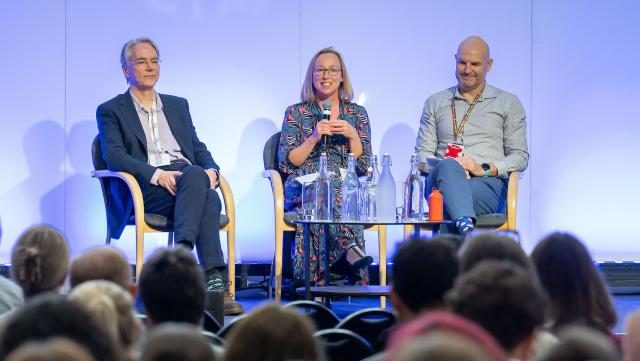By Professor Paul Willis, CARE Director
I was delighted to take part in a recent panel discussion at the annual Health and Care Research Wales Conference on how social care research can impact policy and practice, alongside Professor Donald Forrester, Director, CASCADE Partnership, Rachel Scourfield, Head of Knowledge Mobilisation, Social Care Wales and chaired by Dr Diane Seddon, Reader in Social Care at Bangor University.
One key message that emerged from this insightful conversation was the critical importance of engaging with the right partners from early stages of a project – from initial development of research bids ideally. Meaningful impact depends on researchers investing time to build long-term, collaborative relationships across the sector – this includes collaborations with people with lived experience of social care support and groups representing their voices.
Finding and involving the right partners at the right time can make or break the potential for research to influence policy and practice. I shared an example from a recent project aimed at raising the profile and visibility of social workers who support older people in the community – we showed how the contribution of social workers makes a difference in achieving good outcomes for older people. This work has been strengthened by involvement of two key organisations and a broad network of stakeholders, including a policy advisory group, the British Association of Social Workers (BASW), Principal Social Workers in local authorities, local advisory groups, and people with lived experience—including carers and disabled older people. On the back of our findings one local authority is currently reviewing its social work resource processes to see how they can improve on achieving greater continuity in social work allocation.
Another example of the positive impact of long-term relationship-building and collaboration is the study led by Dr Georgie Powell looking into the application of smart home technologies to support people with learning disabilities to maintain independent living in supported housing. On the back of this project, Georgie has worked with a local housing provider to develop and implement a handbook to help enhance support for residents with learning disabilities.
There is tremendous value gained from collaborating with people with lived experience of social care. Supporting co-researchers with lived experience – whether as users or providers of social care support and services – makes a striking difference. They bring the research to life and people listen to the research findings in a different way.
Through Health and Care Research Wales infrastructure funding, our Public and Professional Involvement Officer, Alice Butler, works closely with the CARE Lived Experience Collective—a group of individuals with direct experience of using and providing social care services. They contribute in many ways: co-designing bids, acting as public co-applicants, and influencing policy. Recently, the Collective submitted its own response to the Welsh Government consultation on the proposed Disability Rights Action Plan—a powerful example of how lived experience can shape national policy.
We also have the privilege of working with a Professional Advisory Forum, made up of practitioners, carers and other professionals from a range of different backgrounds within the adult social care sector. Members of this group share their perspective based on professional experience, about how best to apply the evidence found through research in practice.
We are fortunate to have the support that enables this vital collaboration.

